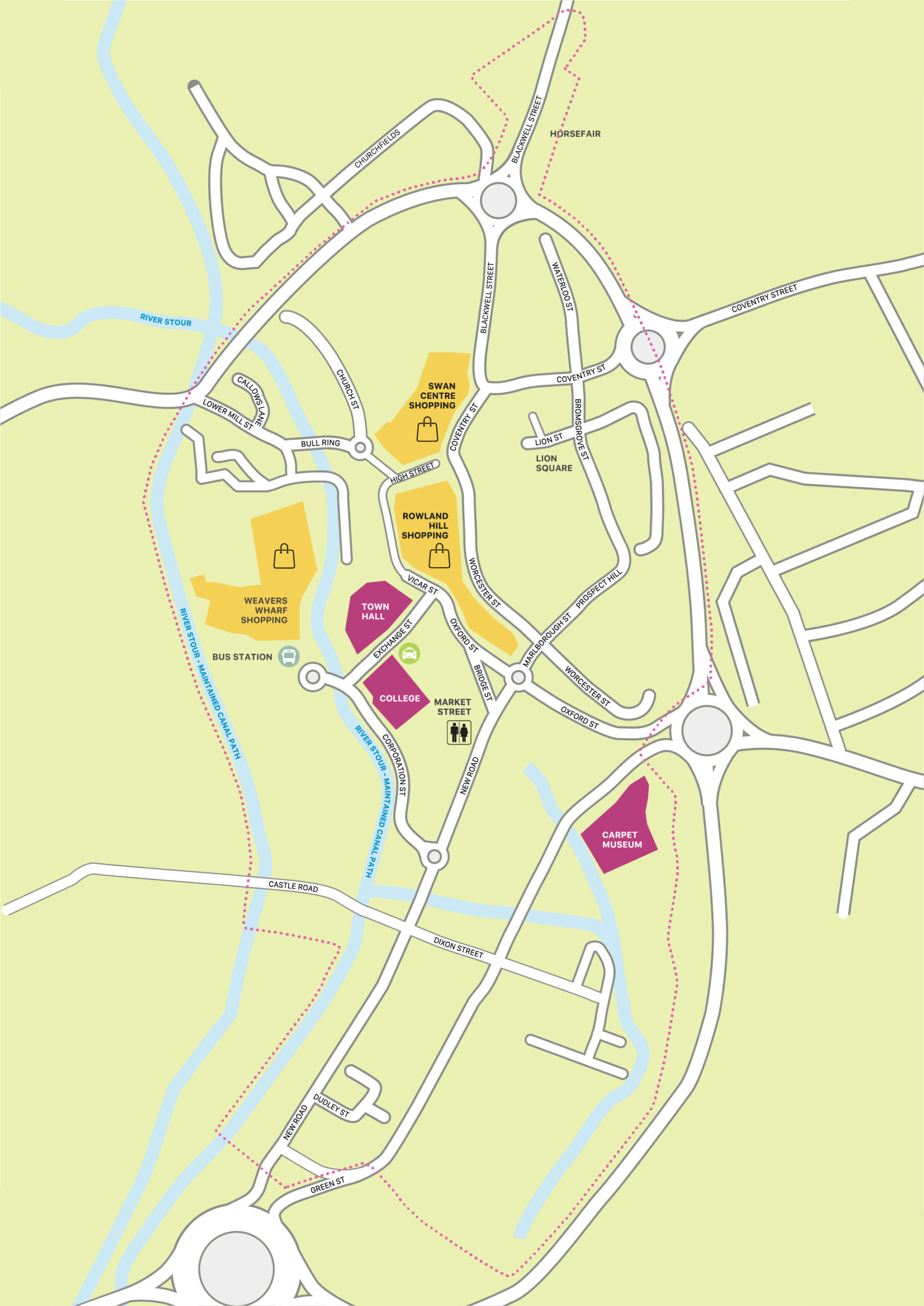What are BIDs?
A BID is an arrangement whereby businesses get together to decide what improvements they want to make in their town centre, how they will manage these and what it will cost them. This all goes into a business plan which is voted on by all those who would have to contribute. The BID lasts for a maximum of five years and must be able to demonstrate how a BID benefits the businesses that have funded it.
Have BIDs been supported elsewhere in the UK?
Since September 2004, when BID legislation was introduced there have been more than 280 BIDs in the UK, which over the next five years will bring in more than £400 million of new finance to develop BID areas.
The important thing is that the BID is focused on delivering real projects determined by detailed consultation with all businesses in the BID area
What might a BID deliver?
It’s up to you. BIDs can deliver projects or services that are agreed by the businesses in the BID area (see map) and must be services and projects that are over and above anything that the Public Sector already provides. Before a BID business plan is produced all the services being delivered by the Local Authority are benchmarked and they must continue to deliver that level of service for the 5-year term of the BID. BIDs can deliver projects or services that are agreed by the businesses within the BID area. A few examples of projects and services that BIDs deliver are:
- Reducing business crime – additional Police or PCSO’s, CCTV schemes
- Reduce operating costs – joint procurement of utilities, insurance, waste management contracts
- Increased cleaning and greening – additional cleansing of the town’s streets and floral displays
- Marketing and promotion – marketing campaigns to promote the town centre as a destination, to develop its identity and increase visitor numbers
Streets included:
- Blackwell Street (Horsefair)
- Bridge Street
- Bromsgrove Street
- Bull Ring
- Callows Lane
- Church Street
- Corporation Street
- Coventry Street
- Dixon Street
- Dudley Street
- Exchange Street
- Green Street
- High Street
- Lion Square
- Lion Street
- Lower Mill Street
- Market Street
- Marlborough Street
- Meadow Mills
- New Road
- Oxford Street
- Prospect Hill
- Rowland Hill Centre
- Swan Centre
- Vicar Street
- Waterloo Street
- Weavers Wharf
- Worcester Street
Includes sub streets and trading estates within the map illustrated.
Comberton Hill and Blackwell Street (north of the ringroad) have also been included but will not be able to vote and will not be required to pay the levy.

To check if your business is in the BID area, get in touch with us!
Why do businesses support BIDs?
A BID is a mechanism which allows businesses to raise a sum of money to manage and deliver projects that they have identified to improve their trading environment.
How is a BID managed?
The majority of successful BIDs are delivered through a company limited by guarantee. The BID Company is responsible for the delivery of the BID projects and services and directly responsible to all businesses through a board elected from those businesses that pay the BID levy.
How is a BID monitored?
Like any good business plan, specific key performance indicators (KPI’s) are set and performance is monitored against the KPI’s by the BID board. The BID Company is answerable to the businesses that pay the BID levy and will be required to monitor and inform its members on its progress.
Who pays for a BID?
Based on the detailed business plan put together by the Task Group, the cost to each business is worked out on a pro rata basis. This is called the “BID Levy”. If the majority of businesses vote YES then ALL within the BID area have to pay. The BID levy is normally paid by the occupiers of a property. In addition BIDs can draw in other voluntary funding, grants and in-kind contributions to supplement the BID levy. The successful BID has a mandate for a maximum of 5 years after which the BID would need to seek a re-ballot.
How Kidderminster BID can support your business?
Since its inception in 2020, the BID’s drive has been focused on 3 key areas, making the town a cleaner and safer environment for visitors and businesses, running free to attend events to attract more footfall into the town from local residents and outside the area visitors, finally supporting local businesses with programs such as CCTV grants, inward investment grants, marketing and much more. Our dedicated BID team work to achieve this and happy to talk to individual business owners to see how we can help them.







